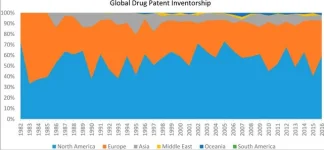- Joined
- Aug 10, 2013
- Messages
- 25,396
- Reaction score
- 32,284
- Location
- Cambridge, MA
- Gender
- Male
- Political Leaning
- Slightly Liberal
Interesting item from Politico today:
Of course insurers, employers, and unions (and perhaps most people) don't like this idea. But it does get at the fact that a bottomless subsidy for employer-based coverage has some distortionary impacts.
Yet capping the tax exclusion for employer-based coverage was already attempted via the ill-fated "Cadillac tax" in the Affordable Care Act, which was first delayed then ultimately repealed before ever taking effect. And pairing the idea of some upper limit to the tax exclusion for employe-based coverage with the demand that the enhanced tax credits in the ACA marketplaces expire is dumb, these are different issues.
But it's interesting some are willing to talk about this idea again. Is a world where employer-based coverage isn't the norm imaginable for people?
A FAMILIAR HEALTH TAX BATTLE — Leading employer groups and health insurers are bristling at proposals from prominent former Trump administration officials and House Republicans to increase taxes on some employer plans if Obamacare’s enhanced premium tax credits expire.
The context: Premiums for employer insurance plans aren’t typically taxable, which incentivizes employers to offer more generous plans. The Paragon Health Institute, a conservative think tank led by former Trump policy adviser Brian Blase, has argued that Congress should allow the tax credits to expire after 2025, saying the Affordable Care Act didn’t intend to fully subsidize plans for enrollees.
If that were to happen, Blase and Theo Merkel of Paragon recently argued, Congress should cap the tax exclusion at 125 percent of the average value of an employer plan as part of broader reform. They contend it would reduce wasteful spending by disincentivizing unnecessarily robust coverage and, in turn, allow employers to offer higher wages.
“We think this is a modest way to ensure that people can still receive assistance for purchasing health insurance through their employer, but at the top end, rein in some of the excesses,” Merkel told Pulse.
The Republican Study Committee — the largest House GOP caucus — endorsed capping the exclusion in a budget plan earlier this year. The proposals are familiar. John McCain called to end tax breaks on insurance in his 2008 presidential campaign, as did former House Speaker Paul Ryan in his Obamacare replacement bill in 2017.
Of course insurers, employers, and unions (and perhaps most people) don't like this idea. But it does get at the fact that a bottomless subsidy for employer-based coverage has some distortionary impacts.
Yet capping the tax exclusion for employer-based coverage was already attempted via the ill-fated "Cadillac tax" in the Affordable Care Act, which was first delayed then ultimately repealed before ever taking effect. And pairing the idea of some upper limit to the tax exclusion for employe-based coverage with the demand that the enhanced tax credits in the ACA marketplaces expire is dumb, these are different issues.
But it's interesting some are willing to talk about this idea again. Is a world where employer-based coverage isn't the norm imaginable for people?

